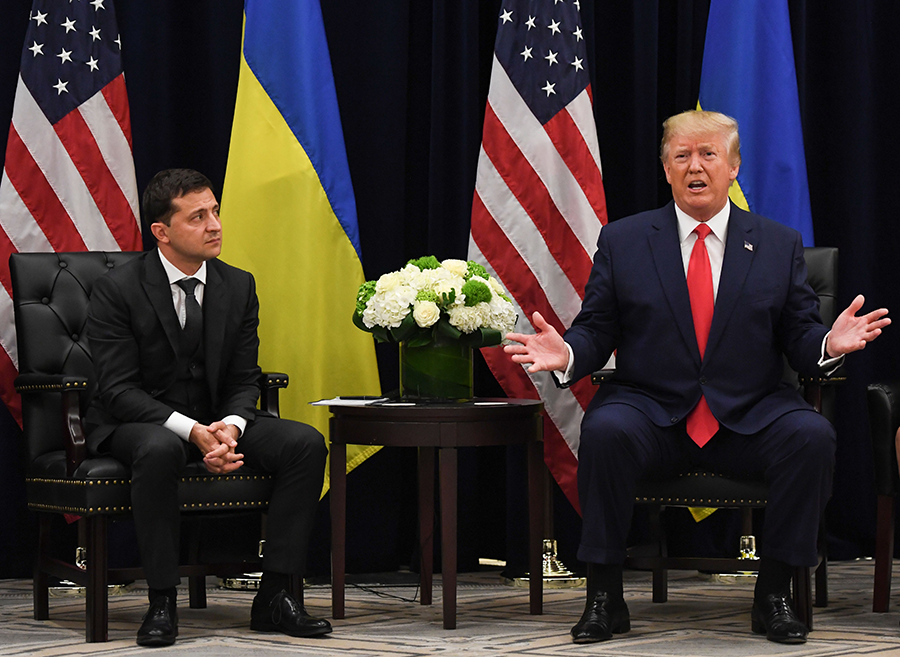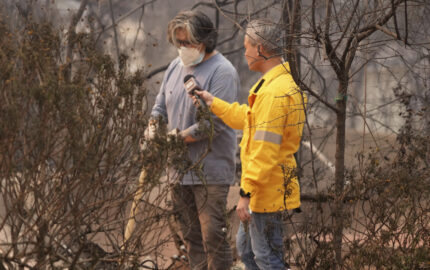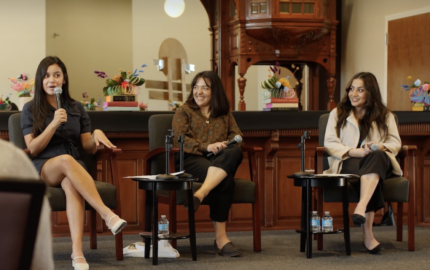Given what we’ve come to learn since Trump took office, we have to think beyond that and consider potential effects that could last well beyond a few election cycles.
Our democracy is being challenged in a way it hasn’t in quite some time. We shouldn’t pretend otherwise. It is being reshaped and redefined seemingly by the hour. That’s why the questions we ask, the panel of readers and voters we convene, the political pundits and analysts we query have to grapple not only with the wisdom of impeachment, but what kind of country we want this to remain, or be.
Because that’s what’s at stake, though it might be uncomfortable for many journalists to admit out loud.
There’s strong evidence—on the record—that Trump, the president of the United States of America, tried to strong arm the newly-elected president of a country in desperate need of our help in an effort to manufacture political dirt on one of Trump's political rivals while the Trump administration was withholding military aid Congress had earmarked for that country. Trump did this a day after Special Counsel Robert Mueller testified before Congress. Mueller outlined the many ways in which the Trump campaign eagerly sought and benefited from assistance from a foreign adversary during the 2016 election cycle and how Trump obstructed the investigation but was spared criminal charges because the Department of Justice believes sitting presidents should not be indicted.
Of course, Democratic and Republican partisans are going to prioritize their own political fates.
Of course, their supporters will do the same while demanding a greater focus on kitchen table issues.
Of course, presidential historians will remind us of just how unique a time we are living through.
And they have good reason to. The results of elections will help determine the makeup of the Supreme Court, how Americans receive and pay for health care access, which wars we will decide to begin and which ones we will decide to avoid. The political considerations for 2020 are important. The makeup of the Senate and House and who gets to reside in the White House next are no small things. But none of that will matter if we lose our democracy in the process.
As of now, I sense that there is too much of a focus on who impeachment proceedings will help or hurt the most and not enough on what happens to this country if the documented presidential abuses already on the record are allowed to stand without significant reckoning and reflection.
This tweet, from , neatly sums up that kind of naked political calculation:
I don’t Tweet very much but reading transcript has moved me to comment. I was totally underwhelmed by the transcript. After the build-up, it was not much more inappropriate said than we hear from him in a typical week. This will not move malleable voters.
— Charlie Cook (@CharlieCookDC) September 25, 2019
I don’t know what will move malleable voters. But I know that if the documented abuses are allowed to stand without real challenge from all corners, they will become the new normal. Presidential campaigns eagerly seeking the help of officials of foreign adversaries who are trying to interfere in our democracy could become standard operating procedure. Long gone will be the Al Gore model, whose campaign refused to use ill-gotten information about the George W. Bush campaign and immediately alerted the FBI. Presidential administrations unexpectedly withholding congressionally-designated military aid while presidents coyly ask the head of a nation desperately needing our help to hurt an American political rival could become just another facet of our political process. Our elections would become suspect, as would every principle we’ve declared we hold dear. That says nothing of presidents being able to look the other way when journalists are assassinated or to leave journalists on foreign soil to fend for themselves when a hostile regime targets them.
It’s not that journalists must drop all attempts at remaining objective, whatever that means, or that they must take sides or become part of “the resistance.” It’s that journalists must remember that the work we do, the questions we ask, the story frames we choose, still heavily influence how such issues are broadly discussed.
The decisions Democratic and Republican leaders make will set political precedent. The decisions journalists make during times like these will set journalistic precedent. That’s why we must remember to remind our readers, viewers and listeners to ask themselves what kind of country they want this to be. Moral and ethical considerations are legitimate topics for journalists to explore.
It’s perfectly reasonable to ask voters how these scandals might affect their vote next November. But it would be a dereliction of journalistic duty if that’s all, or mostly, what we do. At some point, assessing right and wrong—not just the politics—must be given prominent space in our coverage decisions.



